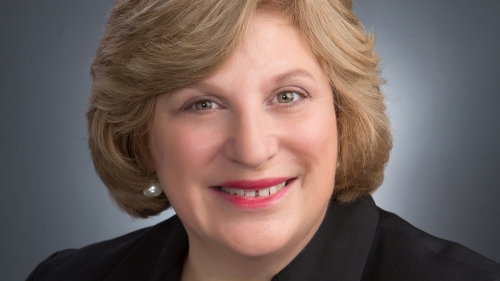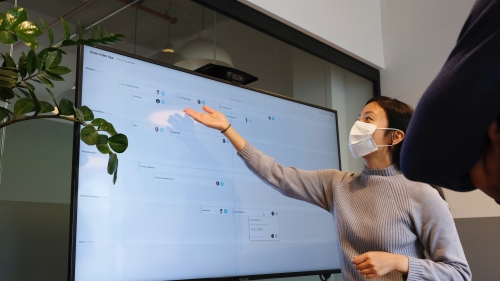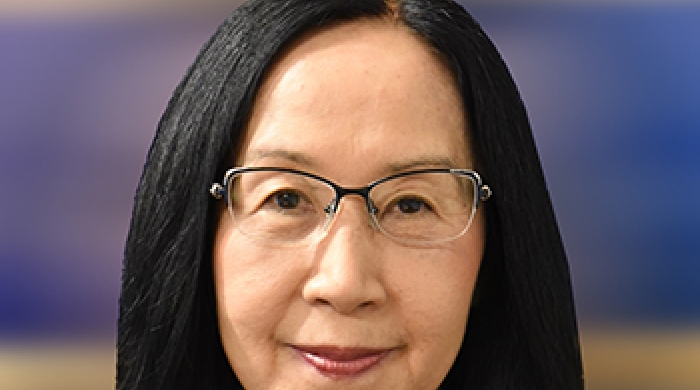Margaret Morone-Wilson is a visiting assistant professor and teacher residency director in the NYU Teacher Residency Program. Morone-Wilson is a 33-year veteran of the Syracuse City School District, New York, a retired assistant superintendent of elementary, PK-8 schools, and early childhood programs. She has served as a consultant, coach, and presenter in the areas of inclusive education, teaching students with autism, social-emotional learning, standards-based instruction, turnaround leadership, and instructional coaching. We asked her to share some insights about teaching and learning.

What are some of the positive changes you've seen during your career in education?
I've seen parents and students develop greater agency for advocating for what they need to ensure success. When I began my career, I would see the same parent advocates at school events, PTO meetings, or BOE meetings. Today parents and students often pack Board of Education meetings to provide public comment on district policies and to serve on committees to change policies that do not serve their family or community well. I've seen more students at the middle and high school level attend their IEP meetings and advocate for the modifications that they are entitled to when their IEP is not being followed during the school year. I believe if we truly want to be partners with the community we must ask what do you need and want and how I can do better? Listening to students and parents is key to forming an authentic partnership.
How has the global pandemic influenced your ideas about teacher training?
I now believe that all teacher training programs need to have a teacher residency model. Teaching is a complex endeavor and having two 6-10-week student teaching placements will never give the potential teacher candidate the preparation they need to succeed. In the teacher residency model, teachers-to-be integrate master’s-level education content with a year-long classroom internship in a public school. The global pandemic solidified my belief in this model because teachers need to learn to adapt weekly to emerging on-the ground-realities.

The global pandemic also required our teacher candidates and school communities to adjust their instructional model quickly. During asynchronous learning we learned that we still need to honor the fundamental fact that teaching and learning is a transactional relationship. Because no matter how well-prepared a lesson is, students' unique questions and perspectives will always occur in the moment. Teacher have realized that as wonderful as ZOOM or Microsoft Teams were in fostered community, the one-on-one classroom check-in was different. So, the old-fashioned phone call to the student became a powerful tool for many teachers; it allowed the teacher to have greater insight into their students' thinking. I think we've learned that a quality one-on-one connection is necessary to be part of a teacher's planning process.
My advice for teachers is to drop the phrase, this is easy. Students and families, stay in communication with your teacher."

Do you have any back-to-school advice for teachers, students, and families?
My advice for teachers is to drop the phrase, this is easy. Often teachers will say this to to students to ease their anxiety, but it often has the opposite effect. The student starts to think they are the only one who is struggling with the assignment the teacher just anointed as easy.
My advice for students and families: stay in communication with your teacher. If an assignment is not clear or there was not the time to complete the assignment, tell the teacher and don't fear repercussions. We are all learning new skills. Parents sometimes will say, “I did not want to complain about ....because it will be held against my child.” Teachers do notice the parents who are paying attention and providing feedback does helps them to perform better. Teachers also need to know from students and parents how they prefer to communicate. A student may prefer a private conversation with the teacher rather than a public conversation, in class, and some parents prefer a text message rather than a phone call, especially during working hours.
Related Articles
Steinhardt Faculty Wins Distinguished Service to Science Education Award
Okhee Lee, professor of childhood education, is the recipient of the National Science Teaching Association's 2020 NSTA Distinguished Service to Science Education Award.

